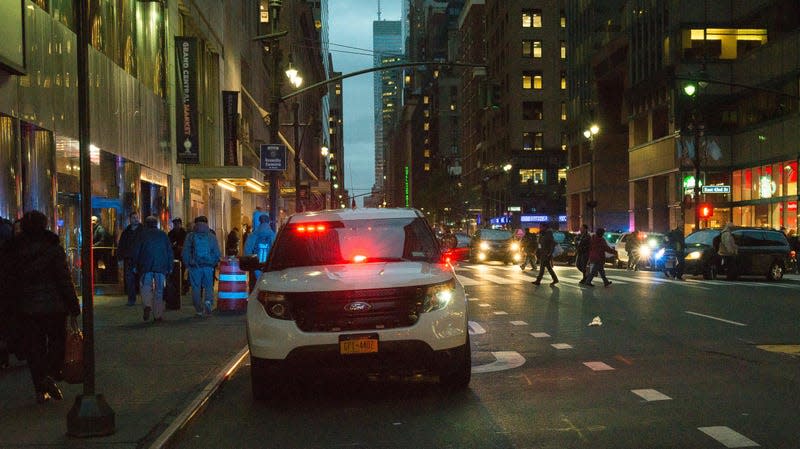Police Lose Federal Funding To Harass Poor People Over Broken Taillights

The “Broken Windows” theory of policing says that addressing small crimes in bad neighborhoods results in fewer larger crimes. This theory is now understood as bunk in community policing, but it is still prevalent in how cops control our roads. The Biden Administration quietly ended federal support for the practice that has alienated citizens against police and done nothing to keep our streets safe.
Called Data-Driven Approaches to Crime and Traffic Safety (DDACTS), the idea is very similar to “Broken Windows” policing, in that police pull over drivers over minor infractions in high-crime areas in order to prevent larger crimes. DDACTS works just as well as Broken Windows, in that it doesn’t work at all. In fact, it might make death on our roads even worse, according to the Hill:
In Nashville, a city that at one time championed this approach, researchers found no relationship between the number of police stops and crime levels. And when Fayetteville, N.C. scaled back stops for minor violations, traffic accidents actually fell, presumably because police had more time to focus on genuine safety-related stops.
What these programs have done is erode trust, violate civil liberties, and make roads more dangerous for Black drivers. In Nashville, Black drivers were 68 percent more likely to be pulled over for non-moving violations. As the killing of Tyre Nichols tragically underscores, these stops can escalate into violence and even death at the hands of police.
Considering how many high-profile traffic stops start with something as mundane as a broken taillight or a seat belt infraction, it seems a good way to get people killed, and a bad way to keep citizens safe. The Biden Administration ended funding for the program last week, a long overdue and necessary step to getting traffic deaths under control.
There’s a reason we’ve been in favor of ending traffic stops in general here at Jalopnik. It’s nice to see some evidence-based action from the feds, but a lot more work needs to be done if we’re going to end the slaughter on America’s roadways. Better designed roads, safe, better designed cars and more public transit are needed to end the historically high rates of death on U.S. roads. In 2022, the most recent year we have data, 42,795 people died in car crashes in the U.S. and that was actually a drop over the previous year’s 16-year high of 42,939.

 Yahoo Autos
Yahoo Autos 